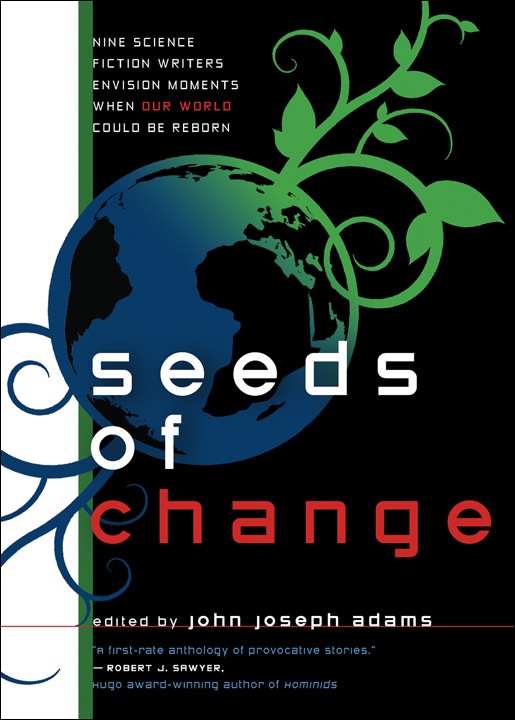Music Apocalypse!
Well, almost. I opened up iTunes the other day only to discover that all of my music had mysteriously vanished. I figured this had something to do with my installation of the latest update, as I’ve had some problems before with updates. So I thought, "Crap, I’m going to have to re-import all of my songs." Only when I went to the folder where my music resides, it wasn’t there either.
After some consulting with my go-to-geek, I determined that this was a problem many other users ran into, though it first started happening quite a while ago, and someone it didn’t happen to me until now. Luckily for me, I had opened iTunes without docking my iPod, or else it might have deleted all the songs from my iPod as well. I don’t know if that could have been stopped had I noticed it was happening, but still, a lucky break.
Since the tunes were still on my iPod, I bought a copy of iGadget, which conveniently allows you to download songs from your iPod onto your PC, and even has a built-in feature which will prevent iTunes from auto-syncing when you dock your iPod (which might have deleted my songs). It worked like a charm, and I was able to transfer all of my tunes off my iPod and back onto my PC, then successfully sync up again, so all is well as if this had never happened. Quite a hassle and cause of frustration, but at least I didn’t lose anything. iGadget even maintained the "last play date," "play count," and "rating" data, so there’s some semblance of order to the music. (I usually sort it by "date added," so my newest music is at the top; now I just have to sort by "date played.")
One other problem associated with this is that the hard drive where my music had been stored was still indicating that the space the music had been taking up was not available (i.e., it still seemed to think the music was on the hard drive). So I started poking around, checking the properties of individual folders to see how much data was in them. Turns out all of my music, which had been in my My Music folder, got moved into the My Pictures folder inside a new folder called something like "John Joseph Adams’s Music." Why that happened baffles me, and frankly sounds like virus behavior to me, though I’m no expert. (My AVG Virus program insists I’m clean.)
I have Amazon’s MP3 download store to thank for saving my iPod’s songs; it was because of that that I happened to open up iTunes (when you download songs from Amazon, when they’re done downloading, it transfers them into iTunes for you, and opens the program in the process). So, thanks Amazon! Just another reason to continue using it instead of iTunes’s DRMed (and lower quality) tracks.
So let this be a lesson to you all out there. Back up your music! Also, don’t have iTunes to automatically sync when you dock your iPod, just in case!



 Rolling Thunder: John Varley: Books
Rolling Thunder: John Varley: Books Biting the Bullet (Jaz Parks, Book 3): Jennifer Rardin: Books
Biting the Bullet (Jaz Parks, Book 3): Jennifer Rardin: Books The Dragon Never Sleeps: Glen Cook: Books
The Dragon Never Sleeps: Glen Cook: Books The Queen’s Bastard (The Inheritors’ Cycle, Book 1): C.E. Murphy: Books
The Queen’s Bastard (The Inheritors’ Cycle, Book 1): C.E. Murphy: Books Elric The Stealer of Souls (Chronicles of Sthe Last Emperor of Melnibone): Michael Moorcock: Books
Elric The Stealer of Souls (Chronicles of Sthe Last Emperor of Melnibone): Michael Moorcock: Books Fallen: Tim Lebbon: Books
Fallen: Tim Lebbon: Books The Hidden City: The House Wars: Book One: Michelle West: Books
The Hidden City: The House Wars: Book One: Michelle West: Books Matter: Iain M. Banks: Books
Matter: Iain M. Banks: Books Shadowplay: Shadowmarch Volume II (Shadowmarch): Tad Williams: Books
Shadowplay: Shadowmarch Volume II (Shadowmarch): Tad Williams: Books The Alchemist’s Code: Dave Duncan: Books
The Alchemist’s Code: Dave Duncan: Books Heroes Adrift: Moira J. Moore: Books
Heroes Adrift: Moira J. Moore: Books Dead To Me: Anton Strout: Books
Dead To Me: Anton Strout: Books Something Magic This Way Comes: Martin H. Greenberg,Sarah A. Hoyt: Books
Something Magic This Way Comes: Martin H. Greenberg,Sarah A. Hoyt: Books Goblin War: Jim C. Hines: Books
Goblin War: Jim C. Hines: Books Alliance Space: C. J. Cherryh: Books
Alliance Space: C. J. Cherryh: Books The Demon and the City: A Detective Inspector Chen Novel (Detective Inspector Chen Novels): Liz Williams: Books
The Demon and the City: A Detective Inspector Chen Novel (Detective Inspector Chen Novels): Liz Williams: Books